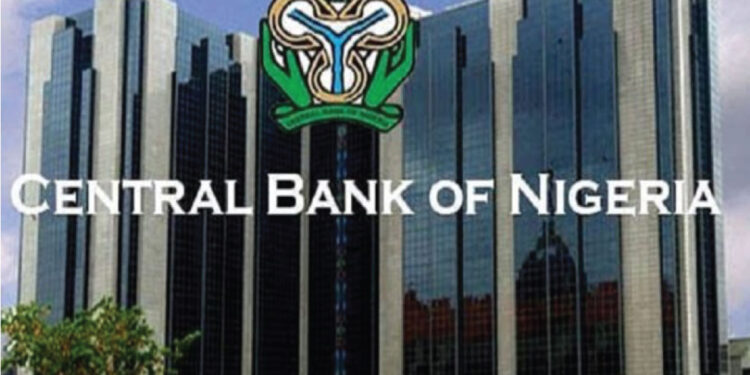A lecturer in the University of Port Harcourt and a public opinion analyst, Dr. Sunny Mbazie has warned the Central Bank of Nigeria, CBN, and the federal government of being in haste in adopting full cashless policy.
Speaking in an interview with Metronetworknews, the don said that Nigeria was bedeviled by poor statistics and that the Central bank was not in touch with realities.
He further said that a lot of Nigerians do not have bank account, the reason being that many of them are daily paid workers who could hardly save anything to put in the bank.
He also said, “Besides, network fluctuation and absence in many parts of Nigeria is High. Many people living in the rural areas lack access to the banks, even POS and not properly enlightened about the cashless policy. Nigerians are always in haste and may not have time for transactions that will delay them. In addition, the rate of cyber crime has increased astronomically, making many Nigerians to lose confidence in cyber transactions”.
Dr. Mbazie advised that in as much as the policy is good that such policy should be implemented gradually with a lot of bench marking so that Nigerians don’t feel the pain much.
He said with the inflation in the country, the withdrawal of petroleum subsidy and present hardship, the policy will worsen the cost and standard of living of many Nigerians.
In his own view, a Port Harcourt based legal practitioner, Dolapo Tella Attoni, hailed the CBN on the policy.
His words; “Going cashless not only eases one’s life but also helps authenticate and formalize the transaction that are done. This helps to curb corruption and the flow of black money which results in an increase of economic growth. Again, when people are handling less cash, bank robberies and burglaries tend to drop”.
Also, the President of the Association of Micro Entrepreneurs of Nigeria, AMEN, Prince Saviour Iche, expressed reservations with the new cash policy.
He said; ‘‘The problem we are having is that most of these policymakers do not consult the stakeholders in most of their policies. They don’t. The problem of this country is the wrong policies.
‘‘If the CBN governor has engaged the civil society group and the businessmen and women I believe that we would have been able to put heads together. For instance, a business friend of mine was telling me last week that he doesn’t do transfer, he believes in going to the bank to do all his transactions because he is afraid of losing his money. He is not an illiterate but a business person, who is trying to be careful. So, what happens to people, who do daily business?
“What CBN doesn’t understand is that people would be afraid to take their money to the bank, they would rather stock it at home to run their businesses. I believe the policy is for only withdrawals, but, if it is for transfer too or deposits, then there would be serious problems.
“Some market women who engage on daily business and carry cash around, they go to bank almost daily to safeguard their money, what happens.”
On his part, President of the Association of Mobile Money and Bank Agents in Nigeria (AMMBAN), Mr. Olojo Victor decried the policy, saying it will not fly, and protested that it will dampen business for mobile banking agents.
“They want to send us out of business. We are against this. It is counter-productive. It does not represent what the CBN initially stood for in terms of financial inclusion. This is not driving us forward.
“It is a punishment for an average Nigerian. A bag of rice is N48,000. That means if I want to go to the market I can’t take cash. How will I do the transaction?
“We don’t have the technological infrastructure to support this policy. Nigerians have not been sensitized. There is no alternative and you are taking out cash. You are running a cash-dominant economy as we speak.
“Cash still remains king whether we like it or not. Go to the average market we still have more cash transactions than PoS and suddenly you want to seal cash without bringing alternatives and education and sensitizing Nigerians on how the alternatives work. This will not fly. It is not suitable. It is a good idea but not at the right time.”
It would be recalled that the Central Bank of Nigeria (CBN) restricted cash withdrawals from over-the-counter, Automated Teller Machines (ATMs) to N100, 000 and N500, 000 per week for individuals and corporate organizations, respectively.
The apex bank disclosed this on Tuesday in a circular to all deposit money banks (DMBs) and other financial institutions (OFIs), signed by the Director, Banking Supervision Department of CBN, Mr. Haruna Mustafa, adding that daily withdrawal from ATMs will now be N20,000 subject to N100,000 per week.
The CBN also directed DMBs and OFIs to load only N200 and lower denominations into their ATMs.
The CBN circular had stated: “Further to the launch of the redesigned naira notes by President Muhammadu Buhari on Wednesday, November 23, 2022, and in line with the cashless policy of CBN, all deposit money banks and other financial institutions are hereby directed to note and comply with the following: the maximum cash withdrawal over the counter by individuals and corporate organizations per week shall henceforth be N100,000 and N500,000 respectively.
“Withdrawals above these limits shall attract processing fees of 5.0 per cent and 10 per cent, respectively; third-party cheques above N50,000 shall not be eligible for payment over the counter, while extant limits of N10 million on clearing cheques still subsist; the maximum cash withdrawal per week via Automated Teller Machine shall be N100,000 subject to a maximum of N20,000 cash withdrawal per day.
“Only denominations of N200 and below shall be loaded into the ATMs; the maximum cash withdrawal via the point of sales terminals shall be N20,000 daily.
“In compelling circumstances, not exceeding once a month, where cash withdrawals above the prescribed limits are required for legitimate purposes, such cash withdrawals shall not exceed N5 million and N10 million for individuals and corporate organisations, respectively, and shall be subject to the referenced processing fees in (1) above, in addition to enhanced due diligence and further information requirements.
“Further to (6) above, you are required to obtain the following information at the minimum and upload same on the CBN portal created for the purpose.”
Many Nigerians believed that the CBN was trying to make Nigerians adopt the cashless policy with these positions.



















